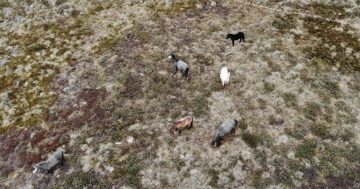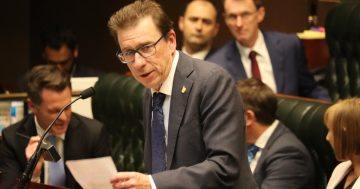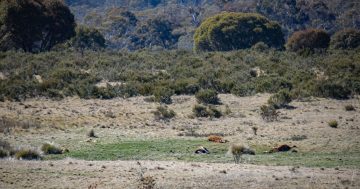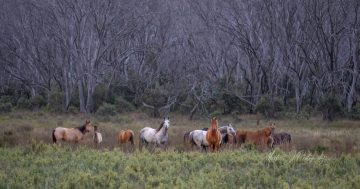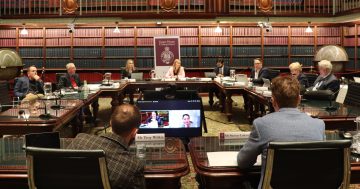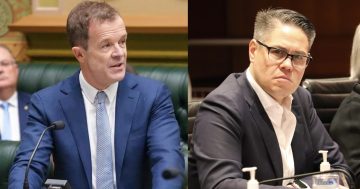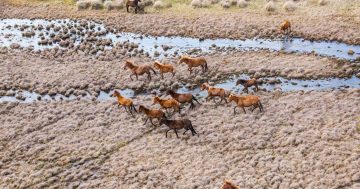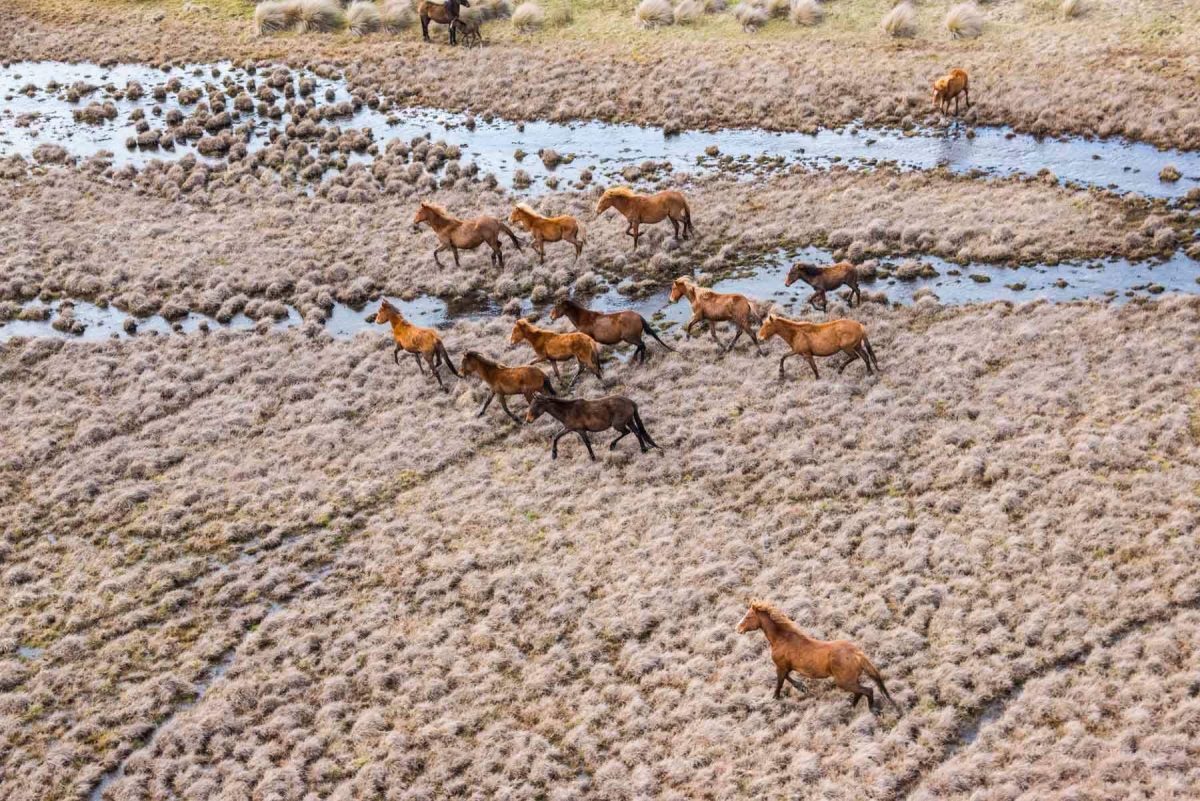
An 11,000-signature petition calling for the repeal of the Kosciuszko Wild Horse Heritage Act 2018 was delivered to NSW Parliament yesterday. Photo: Invasive Species Council.
A coalition of community members, experts and political representatives gathered at NSW Parliament House yesterday (27 March) to deliver a petition of more than 11,000 signatures calling for the repeal of the Kosciuszko Wild Horse Heritage Act 2018.
According to the Invasive Species Council (ISC), it reflects growing concern about the destruction caused by feral horses in Kosciuszko National Park (KNP) – one of Australia’s most fragile alpine landscapes.
The act, introduced by former deputy premier John Barilaro and dubbed the “Brumby Bill”, mandates the retention and protection of at least 3000 wild horses, or brumbies, within designated areas, 32 per cent of the park, due to their cultural and historical significance in connection to pioneering history, pastoralism and the enduring legends of the Snowy Mountains.
These include Kiandra greys, McDonald silver and taffy horses, Currango and Long Plain roans and bays, Cascade, Byadbo and Pilot horses.
The community petition – which, says the ISC, was signed by more than 11,000 people across 50 locations in NSW – was formally handed to Member for Wagga Wagga Dr Joe McGirr, who will table it for debate in NSW Parliament.
Dr McGirr said he was pleased to accept the petition as an important step towards further protecting the fragile alpine environments from wild horses.
“With more than 10,000 signatures, the petition will trigger a debate in parliament which will be an important opportunity for all MPs to debate the Kosciuszko Wild Horse Heritage Act – a counterproductive law that prioritises an introduced species over native flora and fauna in one of our most important national parks,” he said.
“We need a mature, scientifically informed discussion about the best ways to protect the environment from all feral species and I congratulate the petitioners for raising their voices in support of better management systems in the Kosciuszko National Park.”
Snowy River guide, Reclaim Kosci founder and ISC Indigenous ambassador Richard Swain said no law should prioritise a feral animal over native wildlife.
“Feral horses trample our fragile landscapes, pollute our streams and damage sacred Country,” he said. “For the sake of the high country it is past time that we put to bed the senseless arguments and accept the evidence that removing feral horses is the only way of protecting Country from this destruction.
“The next step must be for parliament to repeal this regrettable law once and for all,” Mr Swain said.
Reclaim Kosci petition coordinator and volunteer Linda Groom described the delivery of the petition as a major milestone.
“I started as a bushwalker who could see the damage being done by feral horses and wanted to do something about it, so I organised a protest in 2018 and then became involved with the Invasive Species Council and organised this petition,” she said.
Ms Groom said the Kosciuszko Wild Horse Heritage Act 2018 was a bad piece of legislation because it protected a feral animal in one of our most glorious national parks.
“What has really struck me while gathering signatures is how much public sentiment has shifted,” she said. “More people now understand that removing feral horses, including lethal control, is necessary to protect the park’s precious wildlife and mountain streams.
“It is pleasing to see representatives from all sides of politics demonstrating cross-party support in repealing the act,” Ms Groom said.
A 2023 NSW National Parks and Wildlife Service (NSW NPWS) survey estimated the population of wild horses in KNP to be between 12,797 and 21,760, with a best estimate of 17,393.
NSW Environment Minister Penny Sharp recently revealed preliminary results from the latest population survey of wild horses in KNP indicated a significant drop in numbers following culling operations – now estimated to be around 3000 to 4000.
Ms Sharpe has confirmed an aerial survey was completed in November 2024, however, she said, the final figures were still under review.
The delay is attributed to the trial of two additional survey methods alongside the standard distance sampling technique used in previous years.
She told the NSW Upper House last week the final population estimate would be made publicly available once the review was complete, with the report set to be published on the NSW Department of Climate Change, Energy, the Environment and Water (DCCEEW) website.
Wild horse advocates have come out in strong opposition to ISC efforts to repeal the legislation saying they have gathered more than 212,000 signatures on a change.org petition which calls for an end to lethal control of KNP’s wild horses and urges parliament to back the existing legislation.
They also maintain that no government studies have demonstrated that brumbies harm threatened species or the environment.
Original Article published by Edwina Mason on About Regional.


